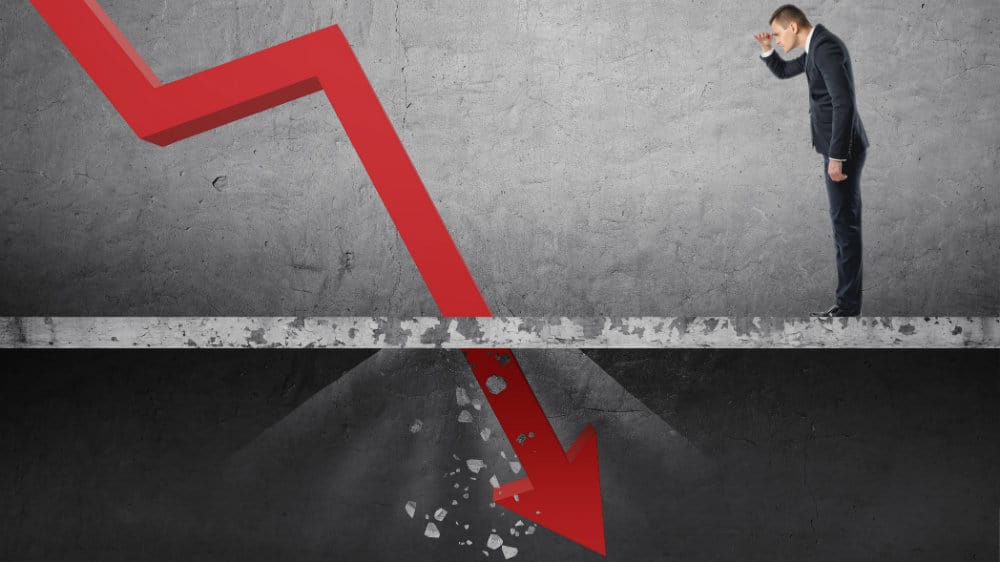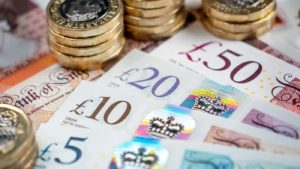A bear market — or stock market crash — is a fall of a fifth (20%) and more from a previous record high. In my 35 years of investing, I’ve witnessed four major stock market crashes (1987, 2000-03, 2007-09 and March 2020). Yet I’ve survived them all and made handsome profits during recent meltdowns. It’s as investing legend John ‘Jack’ Bogle said, “If you have trouble imagining a 20% loss in the stock market, you shouldn’t be in stocks”.
With US stocks looking volatile in 2022, many investors fear another stock market crash. But should they? Here are five numbers from the worst day in US stock market history. That day was 19 October 1987, known as Black Monday.
5 Stocks For Trying To Build Wealth After 50
Markets around the world are reeling from the coronavirus pandemic… and with so many great companies trading at what look to be ‘discount-bin’ prices, now could be the time for savvy investors to snap up some potential bargains.
But whether you’re a newbie investor or a seasoned pro, deciding which stocks to add to your shopping list can be a daunting prospect during such unprecedented times.
Fortunately, The Motley Fool UK analyst team have short-listed five companies that they believe STILL boast significant long-term growth prospects despite the global upheaval…
We’re sharing the names in a special FREE investing report that you can download today. And if you’re 50 or over, we believe these stocks could be a great fit for any well-diversified portfolio.
Stock market crash: 1) 508.32 points
On Black Monday, the Dow Jones Industrial Average index plunged right from the open. By the close, the Dow Jones had lost 508.32 points — in a single day. When this news came through via radio, TV, and newspapers, I was utterly shell-shocked. This stock market crash was like nothing ever seen. Stock prices plunged across the board, driven lower by automated program trading and market liquidity drying up. To put this shocking plunge into context, this points fall was almost five times as large as any previous one-day loss.
Market meltdown: 2) 22.6%
On 18 August 1987, the Dow Jones hit a record closing high of 2,722.42 points. It then started to sag. On Friday, 16 October, the index lost 108.35 points (4.6%) to close at 2,246.74. That represents a loss of 475.68 points from August’s peak. That’s a slump of almost 17.5% from the high. But in Black Monday’s stock market crash, the Dow Jones collapsed by almost a quarter (-22.6%) in just one day. In percentage terms, this was roughly twice as large as any daily fall seen before or since. More like Down Jones than Dow Jones, right?
Bear market: 3) $500bn
Black Monday set multiple records for stock market crashes. For example, trading volume that day of 604.4m shares was a massive record back then. Also, the one-day loss of market value was a record $500bn. To put that loss into context, today Apple is worth around $2.79trn. That’s about 558 times as much as Black Monday’s loss of market value. So although the catastrophic collapse on Black Monday seemed apocalyptic at the time, it’s a tiny sum in today’s markets.
Stock market crash: 4) $1bn
At the time of Black Monday, the world’s richest man was Sam Walton, founder of giant US supermarket chain Walmart. Walton, a multi-billionaire at the time, heard the news of the stock market crash late in the day. On hearing that he had lost perhaps $1bn in a single day, Walton apparently shrugged off this news and vowed to concentrate on his fast-growing business. Walton died in 1992, but his seven heirs are worth perhaps $250bn today. Wow.
Market recovery : 5) 36,952.65
After this colossal stock market crash, pundits warned investors to steer clear of buying stocks and shares. Wrong, very wrong! On 24 August 1989, 23 months later, the Dow Jones closed at 2,734.64 points, exceeding its record high set just over two years earlier. On 5 January 2022, the Dow Jones closed at an all-time high of 36,952.65 points — over 21 times Black Monday’s close of 1,738.41 points.
For me, there’s a clear lesson here. Stock market crashes are usually followed by recoveries and even fresh booms. Therefore, I buy when there’s blood in the streets — even if it’s my own!
Inflation Is Coming: 3 Shares To Try And Hedge Against Rising Prices
Make no mistake… inflation is coming.
Some people are running scared, but there’s one thing we believe we should avoid doing at all costs when inflation hits… and that’s doing nothing.
Money that just sits in the bank can often lose value each and every year. But to savvy savers and investors, where to consider putting their money is the million-dollar question.
That’s why we’ve put together a brand-new special report that uncovers 3 of our top UK and US share ideas to try and best hedge against inflation…
…because no matter what the economy is doing, a savvy investor will want their money working for them, inflation or not!
Best of all, we’re giving this report away completely FREE today!
Simply click here, enter your email address, and we’ll send it to you right away.
Cliffdarcy has no position in any of the shares mentioned. The Motley Fool UK has recommended Apple. Views expressed on the companies mentioned in this article are those of the writer and therefore may differ from the official recommendations we make in our subscription services, such as Share Advisor, Hidden Winners and Pro. Here at The Motley Fool, we believe that considering a diverse range of insights makes us better investors.
This post was originally published on Motley Fool





